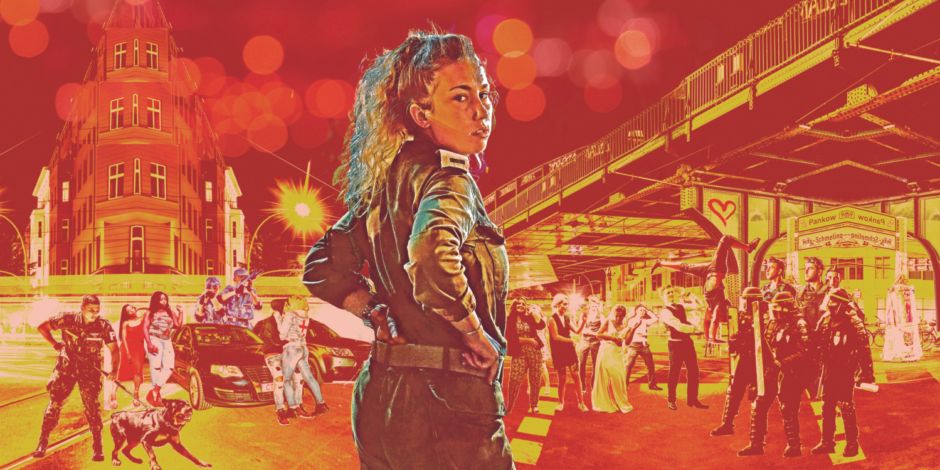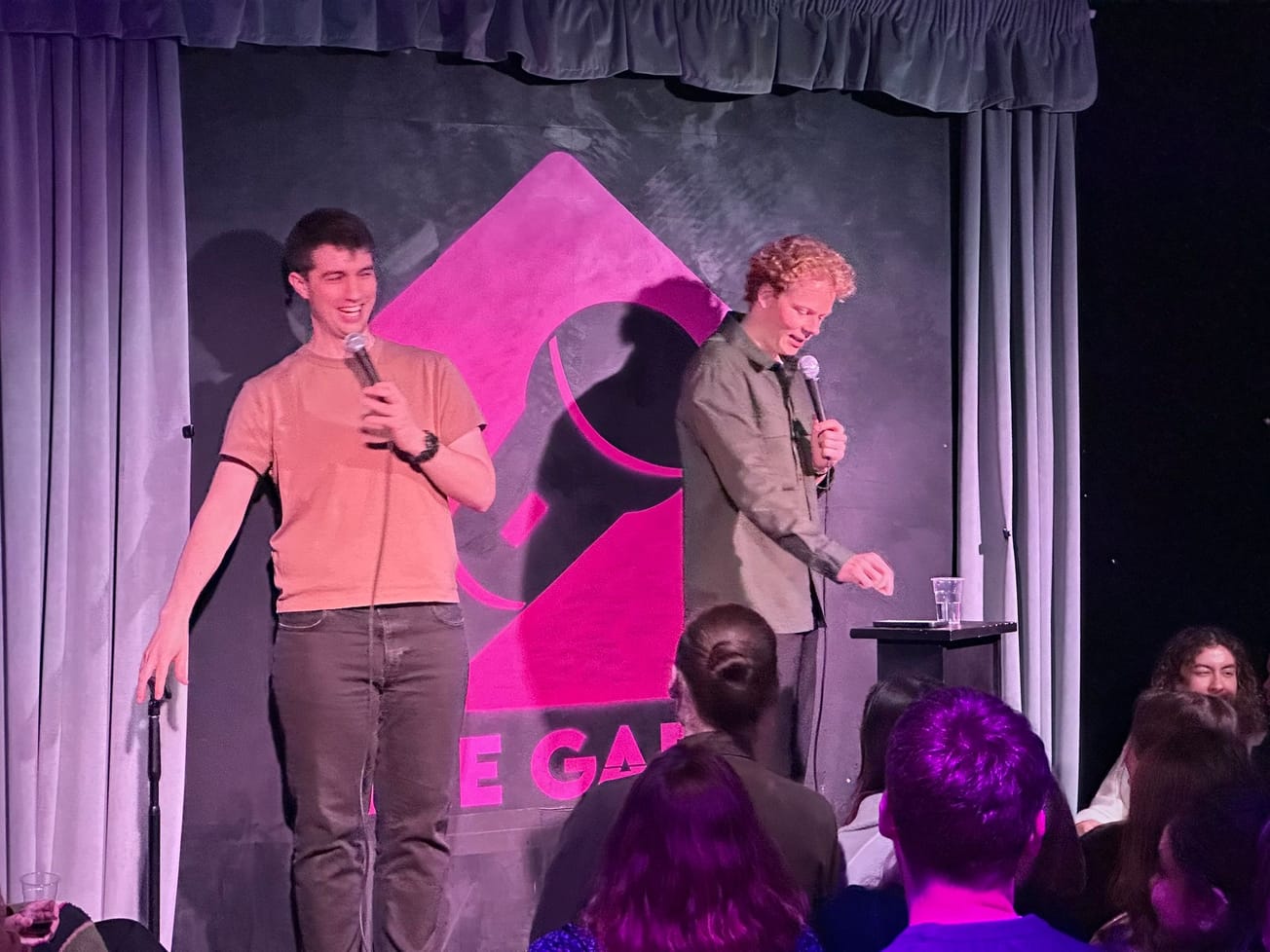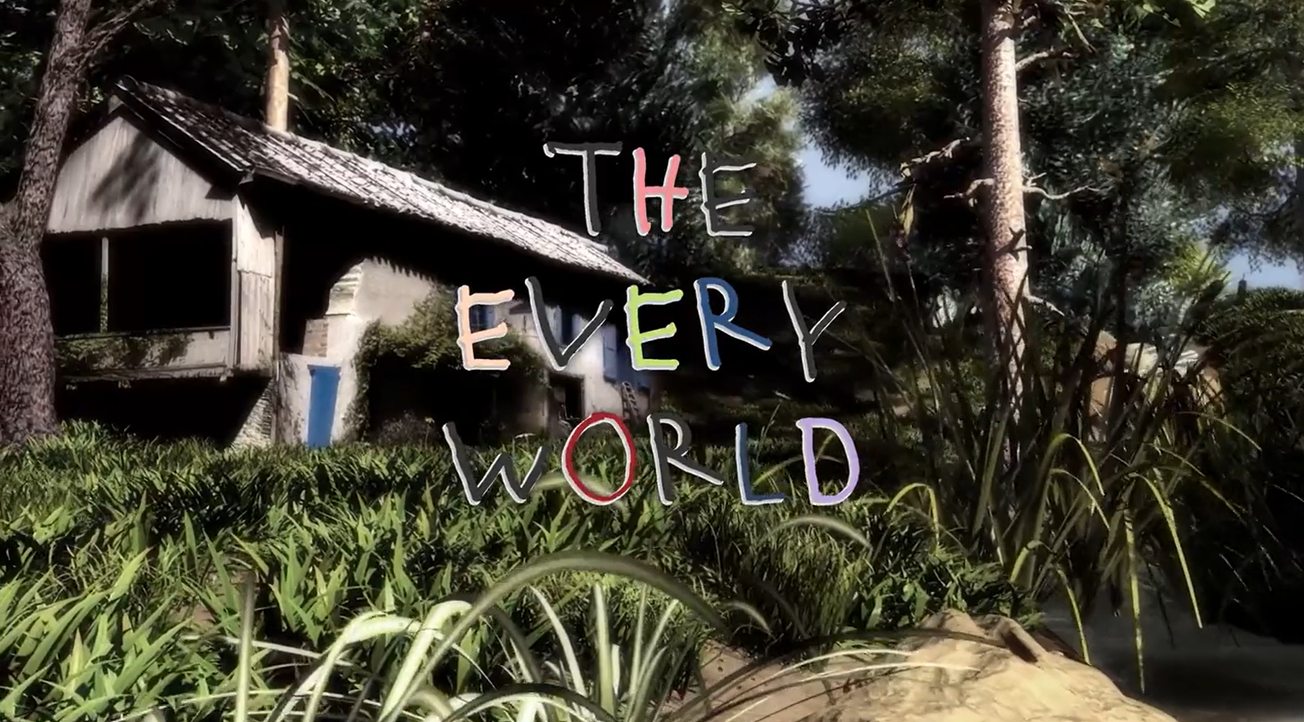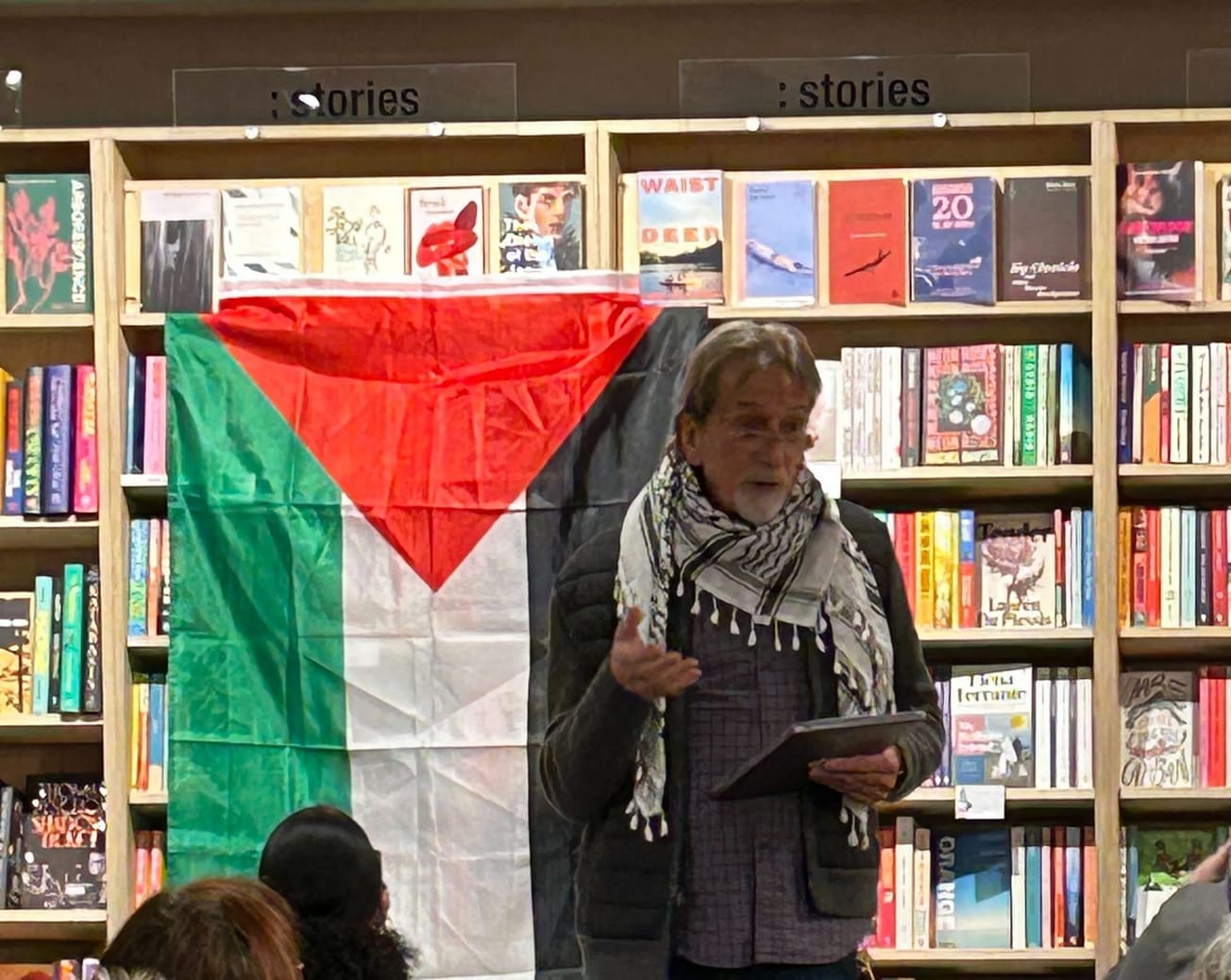By Katie Chalk, First Year English and History
Elizabeth Freestone’s directorial return to the Tobacco Factory, this modern adaptation of one of Shakespeare’s most loved comedies is an evening of lighthearted fun with subtle undertones of the dark realities of war.
It is safe to say, the strongest aspect of this lively production was just how genuinely funny it was. Audience members were left in stitches throughout the first act particularly (me included: I had to get the tissues out for crying with laughter). Geoffrey Lumb as Benedick provided the stand-out performance for me. His comic timing was impeccable, and I thoroughly enjoyed his unapologetic pushing of the comedic value of a scene to its farcical and ridiculous limit, a strategy which permeated the production as a whole. Dorothea Myer-Bennett’s Beatrice was witty, sassy and strong, bouncing off Lumb to create believable chemistry. This was exemplified when an obviously hungover and unwilling Beatrice slumps in to invite Benedick to dinner, to which he gives the widest, most ecstatic, awe-struck smile, obviously dazed having just been convinced of Beatrice’s love for him. This and many other of their exchanges drew delighted laughter from the audience.
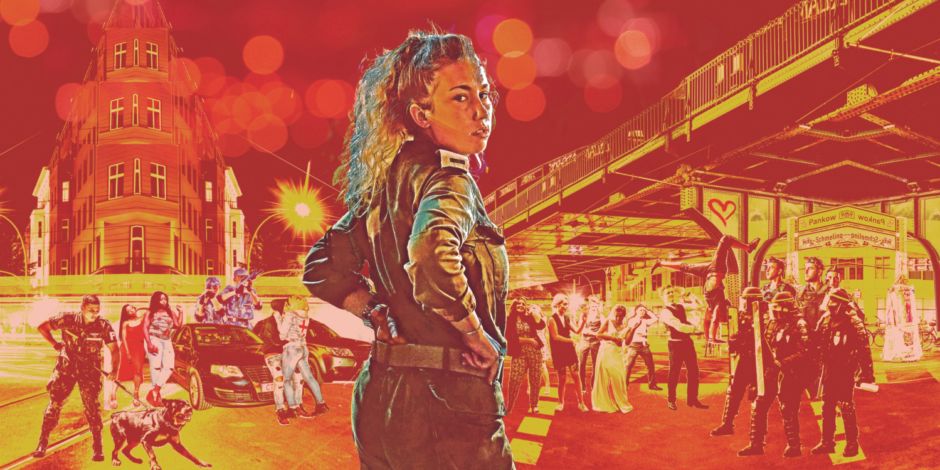
It is a testament to the strength of the cast that all of them deserve notation which my word count will not allow! I will, however, recognise that the gender-swapping of the characters Don John (Georgia Frost) and Dogberry (Louise Mai Newberry) was indeed refreshing with both actors providing very strong performances.
Apart from the comedy, I was also curious to witness how the effects of war, a feature which is often brushed over in many adaptations, would be explored in a modern setting. The opening scene did not disappoint as the audience are immediately thrust into a battlefield setting to witness the rewarding of Claudio (Imran Momen) and subsequent shaming of Don John for their respective performances in battle. The jarring and inescapably modern costumes of khaki uniforms establish the gritty reality of 21st century warfare from the start.
It was, therefore, a shame that an adaptation which promises to show ‘a group of soldiers attempt[ing] to put their fighting days behind them’ does little, or certainly not enough, to explore this theme throughout the rest of the production or indeed just to take advantage of the opportunities a modern adaptation can provide. Indeed, the use of phones, most notably in the capturing of Hero's (Hannah Bristow) supposed infidelity on video, was clever but this idea could have been pushed further. Perhaps the determined attempt to leave the script un-altered, which is admirable, did however deprive this adaptation of opportunities to orientate this production more solidly in the modern age.
Our 3rd preview tonight & we’ve had very full houses & lots of laughter & applause 👏 It’s a joy to bring #muchadoaboutnothing Dir. by Elizabeth Freestone to @tftheatres running to 9 Nov before heading to London @WiltonMusicHall 12-23 Nov https://t.co/Ycmn6L8QpT #20thAnniversary pic.twitter.com/GbeddtFTym
— stf-theatre (@ShakespeareatTF) October 18, 2019
In terms of setting, the ‘in-the-round’ setup provided in intimacy to the action and certainly increased the feeling of audience involvement, whilst multifunctional props such as crates and barrels provided the understated simplicity of an Italian home which was also beautifully enhanced by the simple lighting design.
In short, I had one of the best nights at the theatre that I have had the pleasure of experiencing in a while. I cannot, however, help wishing there had been more depth to the promised exploration of ‘what happens to people after war’ which I believe would have elevated this production immeasurably.
★★★★
Featured Image: Tobacco Factory Theatres
Will you be seeing Much Ado About Nothing at the Tobacco Factory?

